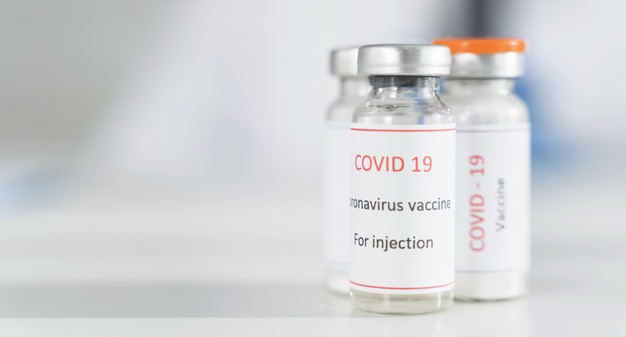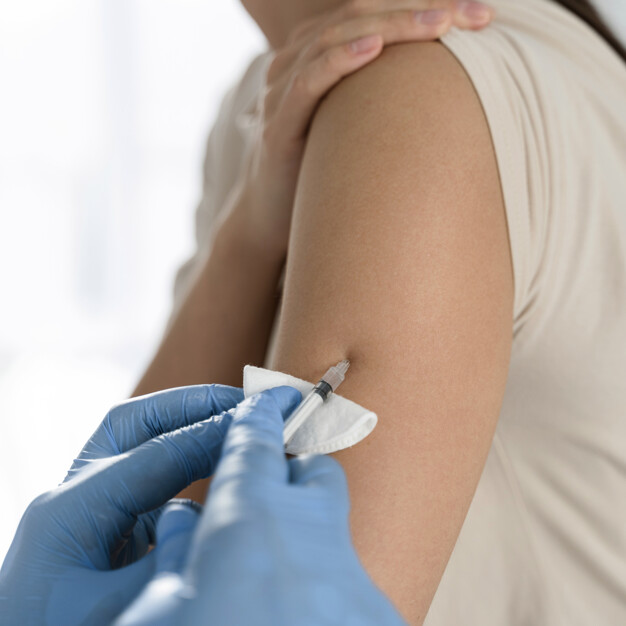
Covid-19 numbers are continuing to soar in the United States and around the world, but as a new year is upon us there is also good news! Many countries are getting their first doses of the Covid vaccine. While taming this virus hasn’t been easy, this has definitely shined a bright light at the end of this tunnel. In this blog, we will discuss the different approved vaccines, who is eligible, and what to expect when it comes to coverage on their insurance plan.
Which Vaccines Have Been Approved in the US?
In the United States, there are three vaccines that have received emergency authorization: Pfizer-BioNTech’s COVID-19 vaccine, Moderna’s COVID-19 vaccine, and the most recent Janssen/Johnson & Johnson COVID-19 vaccine. These three vaccines are being rolled out throughout the US, with a possibility of more on the way.
According to the CDC, there are two more vaccines that are undergoing Phase 3 Clinical Trials and may get emergency authorization in the near future depending on their success. These vaccines in Phase 3 trial are the AstraZeneca’s COVID-19 vaccine and Novavax’s COVID-19 vaccine.
As more people are learning about the vaccine, let’s take a moment to explore each approved vaccine, what to expect, and it’s effectiveness:
Pfizer-BioNTech COVID-19 vaccine
Type of vaccine: mRNA
Approved ages: 16 years of age and older
Number of shots: 2 shots, 21 days apart
This was the first vaccine on the market, and showed to be 95% effective. There are two shots given in the upper arm muscle, twenty-one days apart. The most common side effects are pain, swelling, and redness where the shot was administered, as well as headaches, tiredness and chills throughout the body (which was more common after the second shot). The CDC recommends that if you have had a severe or immediate allergic reaction (anaphylaxis) or if you are allergic to PEG or polysorbate, you should not get this vaccine.
Moderna’s COVID-19 vaccine
Type of vaccine: mRNA
Approved ages: 18 years of age and older
Number of shots: 2 shots, 28 days apart
This vaccine was approved shortly after the Pfizer vaccine, and has had major distribution throughout the US. Based on clinical trials, this vaccine has shown to be 94.1% effective after two doses. Like the Pfizer vaccine, there are also two shots given but 28 days apart, and the shot is administered in the upper arm muscle. The most common side effects are pain, swelling, and redness where the shot was administered, and headaches, tiredness and chills throughout the body (which was more common on the second shot). The CDC recommends that if you have had a severe or immediate allergic reaction (anaphylaxis) or if you are allergic to PEG or polysorbate, you should not get this vaccine.
Johnson & Johnson’s Janssen COVID-19 vaccine
Type of vaccine: Viral vector
Approved ages: 18 years of age and older
Number of shots: 1 shot
This is the most recent vaccine on the market, and showed to be 63% effective in clinical trials. While the efficacy is lower than the other two vaccines, experts say that it is hard to compare side-by-side since the J&J vaccines was conducted during higher rates of COVID-19 vaccines and tested in populations with the variants such as the UK and South African strains. Also, unlike the other two vaccines, this one is what they call “one and done” meaning that there is only one shot administered in the upper arm muscle. Studies have also shows that the side effects are reduced with this vaccine, however the most common side effects are pain, swelling, and redness where the shot was administered, as well as headaches, tiredness and chills throughout the body. The CDC recommends that if you have had a severe or immediate allergic reaction (anaphylaxis) or if you are allergic to polysorbate, you should not get this vaccine.
What to Expect After the Vaccine
Most side effects occur 7 days after the shot, and if you are having discomfort, the CDC recommends talking to your doctor about over-the-counter medication such as ibuprofen or acetaminophen. Additionally, they recommend drinking plenty of liquids and to wear light clothes if you experience fever-like symptoms and to apply a cold wet rag to the area where the shot was administered to reduce discomfort. Exercising the arm which received the shot can also help with pain.
Who is Eligible for the Vaccine?
As many people around the world are anxiously awaiting to get the vaccine, and while demand continues to outpace supply, governments around the world are having to make tough decisions about who will get the vaccine and when. The good news is that production continues to ramp up, and more vaccines are on the way.
In the United States, the decision on who will get the vaccine and when has been largely left to each state. Because of the decentralized nature of the roll out, you may need to contact your local Department of Health to get more specifics for your area.
The CDC recommendation on the roll out of the vaccine is divided into phases which include:
- Phase 1a: Healthcare personnel and residents of long-term care facilities
- Phase 1b: Frontline essential workers (which may include fire fighters, police officers, corrections officers, food and agricultural workers, United States Postal Service workers, manufacturing workers, grocery store workers, public transit workers, and those who work in the educational sector) and those ages 75 years and older (although people who are at long-term care facilities in this age group can be included in Phase 1a.)
- Phase 1c: People aged 65-74 years (although people who are at long-term care facilities in this age group can be included in Phase 1a.), people who are under 64 with underlying medical conditions, and other essential workers (transportation and logistics, food service, housing construction and finance, information technology, communications, energy, law, media, public safety, and public health).
For most international students, the vaccine is available in many states already. The current administration predicts that every adult in the United States over 18 years old will be eligible for the vaccine by April 19th, 2021. The best way to check if you’re eligible for the COVID-19 vaccination is to contact the department of health in your city or county to confirm your eligibility and find free vaccination sites.
Is The Vaccine Covered on my Insurance Plan?

The Covid vaccine is not currently available for purchase at local pharmacies, clinics or hospitals. At this time, the only way to get the vaccine in the United States is to be a designated group as determined by the state you are residing in. Any vaccines that were purchased with U.S. taxpayer dollars – so any vaccines you get through your Department of Health – will be given at no cost.
Since the Covid-19 vaccine is currently only being paid for by governments at this time, there should be no current need to file a claim. However, when the vaccine is later offered to the general public and no longer exclusively funded by governments, we may start to see clinics, pharmacies, and other health care facilities start charging fees for the vaccine. If this is the case, then it’s important to review your insurance plan benefits and exclusions to confirm whether the vaccine is covered. Timing on the roll out of this is still unknown and insurance companies around the world are continuing to monitor this.
It is also important to note that it is unlikely that an international student would be eligible for the vaccine at this time as many states are working on vaccinating those who fall into Phase 1a, 1b, and 1c. When this does open up to more individuals, however, we will have more clarity and information on the vaccination process. International students who plan on studying abroad, however, may want to check the availability in their home country before traveling since their home country’s policy may be different.
As time goes on, supply will be expanded, more people will be eligible for the vaccine, and more information about the process will be clarified. The good news is that 2021 should look different than 2020.
Category: Health & Safety Abroad, International Student Health Insurance, International Students in the USA, Student Insurance, Study Abroad
Tags: CDC recommendations, coverage for COVID-19, coverage for COVID-19 vaccine on insurance plan, COVID-19, COVID-19 Vaccine, international students, international students in the US, Study Abroad

I bought your company’s student insurance, and now I want to get vaccinated. I need an insurance card from my insurance company to get vaccinated. I’d like to know how to get my insurance card. I emailed you before but didn’t get a reply.
Hello Zhiyang,
Thanks for your comment. You should have received a confirmation email immediately upon purchase, which includes your insurance documents. I have followed up via email to chenzhiyang@unm.edu.
Have a nice day!